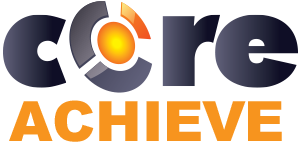Enhancing Team Dynamics for Effective Group Decision-Making with LMS Integration
January, 23 2024
Other posts:
Maximizing Small Business Potential with Training Technology
Training technologies can push small businesses ahead of their competitors, but what are the factors that go into choosing the right technology?
Unlocking Employee Potential: The Transformative Benefits of an Interactive Learning Management System (LMS)
Interactive training allows for unlocking employee potential, but how is it done?
Building a Robust Sales Pipeline with Training
Every organization wants a streamlined sales pipeline, but building one requires a series of interlocking activities with one of the most important being training.
Strategies for Adapting In-Person Training to Online Platforms
Online training is one of the most flexible ways of delivering training across organizations, but how do you even begin to adapt in-person training into online?
Giving Back to Employees: Strategies for Impactful, Organizational Gifts
Gifts don't have to be purely material, organizations can give back to their people by implementing some structural changes.
Organizations increasingly rely on collaborative efforts to solve complex problems, innovate, and adapt to change, but how do we ensure that collaboration is happening.
Organizations increasingly rely on collaborative efforts to solve complex problems, innovate, and adapt to change. Understanding how teams’ function and making informed decisions collectively can significantly impact the overall success of a business. Organizations need to explore the importance of team dynamics, strategies to enhance group decision-making skills among professionals, and how a Learning Management System (LMS) can be leveraged to bolster team support.
The Significance of Team Dynamics
Team dynamics refers to the patterns of interaction and collaboration among team members. A positive team dynamic fosters open communication, trust, and a shared sense of purpose. Conversely, poor team dynamics can lead to conflicts, reduced productivity, and an inability to make effective decisions.
Communication is Key: Effective communication is the cornerstone of successful team dynamics. Team members need to be able to express their ideas, ask questions, and provide feedback. Encouraging an open and transparent communication culture ensures that information flows freely, reducing the likelihood of misunderstandings.
Building Trust: Trust is required for effective communication but can be tricky to be maintained. When team members trust one another, they are more likely to collaborate, share information, and take risks together. Building trust involves creating a supportive and inclusive environment where individuals feel valued and respected.
Clear Roles and Responsibilities: Clearly defined roles and responsibilities contribute to a smooth team dynamic by building trust or solidifying communication. When everyone understands their role within the team, it minimizes confusion, avoids duplication of efforts, and promotes accountability. Regularly revisiting and adjusting roles as needed ensures alignment with team goals.
Strategies for Improving Group Decision-Making
Group decision-making involves synthesizing the diverse perspectives within a team to arrive at a collective choice. Effective decision-making is crucial for achieving organizational objectives and responding to challenges.
Diverse Perspectives: Encourage diversity within the team by bringing together individuals with different backgrounds, experiences, and expertise. Diverse perspectives contribute to a richer pool of ideas and solutions, fostering creativity and innovation.
Active Listening: Actively listening to team members is essential for understanding their viewpoints and promoting a collaborative atmosphere. Encourage team members to listen attentively, ask clarifying questions, and paraphrase information to ensure mutual understanding.
Structured Decision-Making Processes: Implement structured decision-making processes, such as brainstorming sessions, SWOT analyses, or decision matrices. These frameworks provide a systematic approach to evaluating options and making informed choices based on collective input.
Consensus Building: Aim for consensus when possible, ensuring that team members are aligned and committed to the chosen course of action. Consensus does not mean complete agreement on every detail but signifies general support for the decision.
Conflict Resolution: Address conflicts constructively by creating a safe space for disagreement. When conflicts arise, focus on understanding different perspectives and finding common ground. A well-managed conflict resolution process strengthens team relationships and decision-making capabilities.
Leveraging an LMS for Team Support
Integrating a Learning Management System (LMS) into professional training can significantly enhance team support. An LMS provides a centralized platform for delivering training materials, fostering collaboration, and tracking individual and team progress.
Centralized Learning Resources: An LMS allows organizations to centralize learning resources, making it easy for team members to access training materials, documents, and relevant resources in one place. This ensures that everyone has access to the same information, promoting consistency and alignment.
Collaborative Learning Opportunities: LMS platforms often include features that facilitate collaborative learning, such as discussion forums, group assignments, and virtual team spaces. These tools encourage team members to share insights, ask questions, and work together on projects, fostering a sense of community.
Progress Tracking and Reporting: LMS platforms offer robust tracking and reporting functionalities, enabling both individuals and team leaders to monitor progress. This transparency allows teams to identify areas for improvement, celebrate successes, and adjust their strategies based on real-time data.
Customized Training Paths: LMS platforms enable organizations to create customized training paths for different teams or roles within the company. Tailoring training programs to specific team needs ensures that professionals acquire the skills and knowledge relevant to their roles, contributing to overall team success.
Mobile Learning Accessibility: Many LMS platforms support mobile learning, allowing team members to access training materials anytime, anywhere. This flexibility accommodates diverse schedules and remote work scenarios, ensuring that training remains accessible and convenient for all team members.
By fostering open communication, building trust, and implementing effective decision-making strategies, teams can navigate challenges successfully and contribute to the overall success of their organizations. Integrating an LMS into professional training further enhances team support, providing a centralized and collaborative platform for continuous learning and development. Investing in team skills is vital for the longevity of organizations.
Get started with CoreAchieve today for free.
Photo by Papaioannou Kostas on Unsplash

Leave comment: